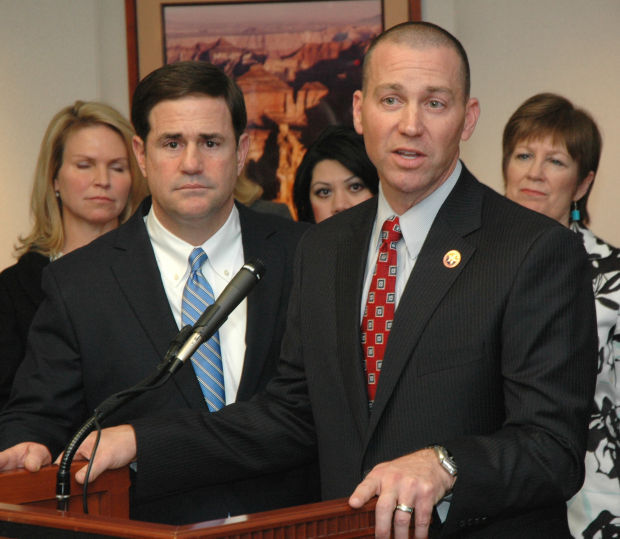Local agencies that provide supervised visitation to foster children and help reunite foster kids with their parents are still waiting to see what the months ahead will bring.
An email this week from the Arizona Department of Child Safety let agencies know two things: Current case aide contracts will continue until the end of September — rather than until the end of August, as originally stated — and parent aide contracts have been extended until Feb. 28.
Agencies here and across Arizona are being scrutinized in a statewide check on overspending.
Some were spending too much on overhead costs, said Arizona Department of Child Safety Director Greg McKay, with employees receiving gym memberships and other perks while draining money he said could be going to other services.
But providers say the national hourly average for a supervised visitation is $80 — the same as Arizona’s average.
That amount, used to provide children and their parents with opportunities to meet and work toward reunification, includes employee pay, benefits and training as well as transportation costs, utilities, facility rental and sometimes food.
With roughly 19,000 Arizona children in out-of-home care, child advocates say spending high sums on these services is unavoidable, and that if some agencies are abusing funds, that should be addressed individually.
The emailed letter leaves many questions unanswered, said Bob Heslinga, executive director of Aviva Children’s Services, which oversees 500 to 600 parent-child visitations per month.
For one, Heslinga said, agencies were originally told to apply only for case aide jobs and that the parent aide job would be included in that.
“Now it appears they are totally separating that out,” he said.
One hope is that having more time will provide a chance to find the best approach and cost-saving measures that won’t hurt services.
“I’m not sure how to interpret it at this point, but I think they are listening to some of the concerns,” said Denise Ensdorff, executive director of Arizona’s Children Association.
Emily Jenkins, director of the Arizona Council of Human Services Providers, said she is hopeful this will provide an opportunity to sit down with both the Arizona’s governor’s office and the DCS.
“We hope to come to a better understanding of what the level of expertise is that’s needed and what it costs our agencies to provide those services,” she said. “It’s time to step back and have reasoned discourse about how we can come together and provide the level of services these children need.”
The biggest concern, she said, is that children will be left in limbo.
The DCS did not respond to interview requests Friday.





